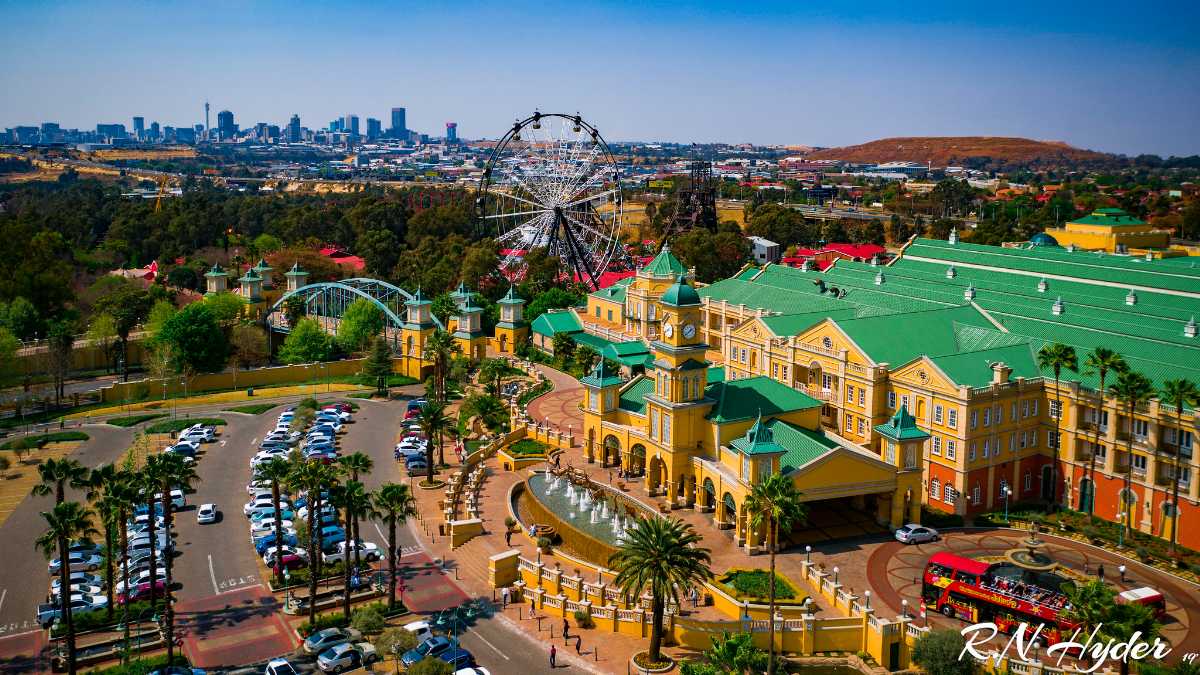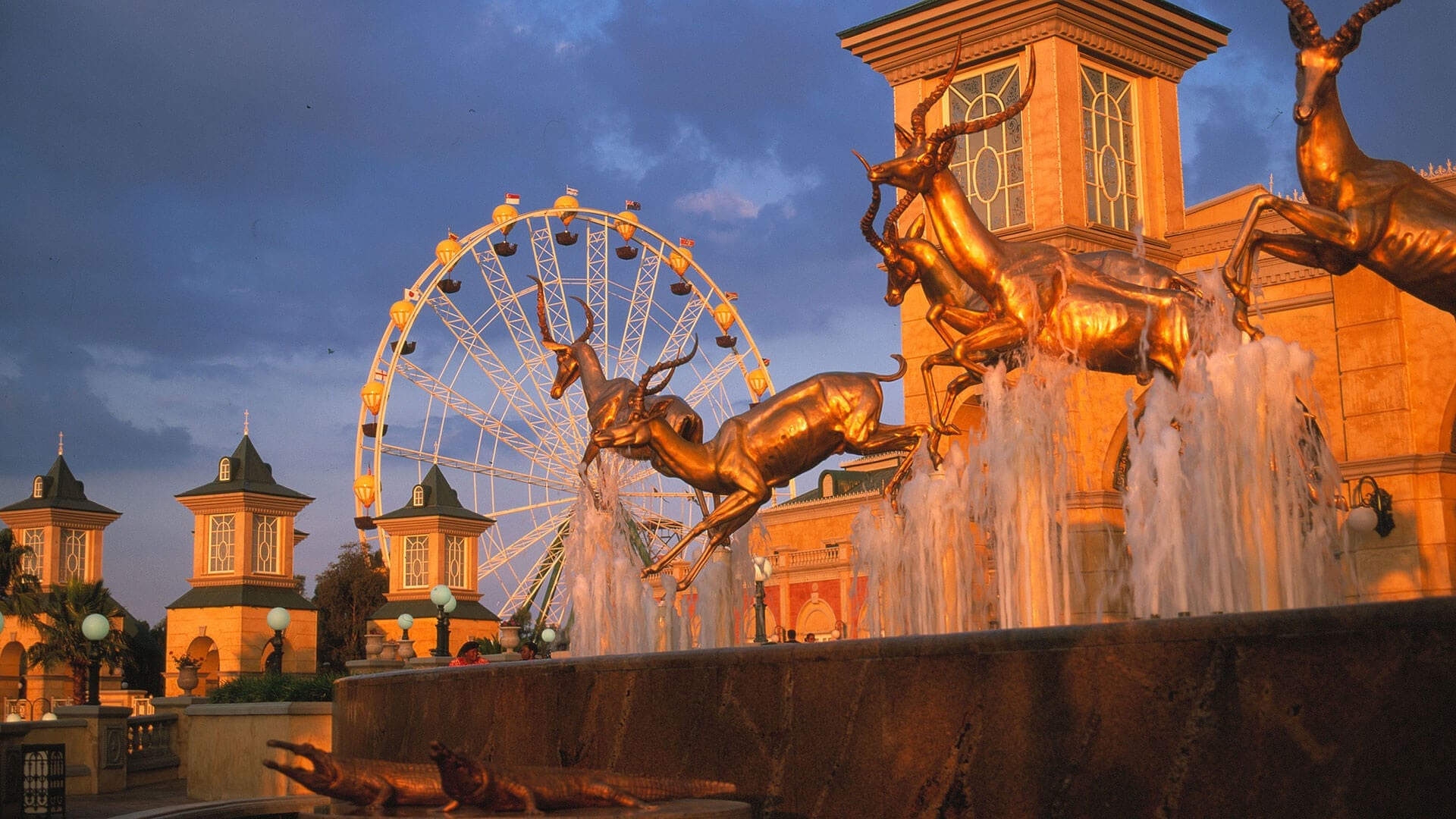The Definitive Guide for Johannesburg North Attractions
The Definitive Guide for Johannesburg North Attractions
Blog Article
The Facts About Johannesburg North Attractions Uncovered
Table of Contents10 Easy Facts About Johannesburg North Attractions ShownJohannesburg North Attractions - The FactsGet This Report on Johannesburg North AttractionsSome Ideas on Johannesburg North Attractions You Need To KnowJohannesburg North Attractions - QuestionsLittle Known Facts About Johannesburg North Attractions.Get This Report on Johannesburg North Attractions
You should keep security in mind and travelers need to remain sharp at all times when in unfamiliar environments. Talk to the residents when you remain in town to discover out concerning the area you are staying in. Johannesburg North attractions. When on the road (this does not put on mall and various other safe and secure settings) best basic guidance is to try your best to resemble a local and to avoid presenting any type of kind of wealth
The Buzz on Johannesburg North Attractions
Professor Revil Mason O. J. (Thomson, 1946) discovered the Witwatersrand's pre-colonial background. His historical job took off the 'em pty land' misconception, according to which the region was without human habitation before the arrival of European inhabitants. In his magazines Prehistory of the Transvaal: A Record of Human Task (1962) and Origins of Black People of Johannesburg and the Southern Western Central Transvaal Advertisement 3501880 (1986 ), Professor Mason showed the extent of social and economic growth in the location prior to Europeans set foot right here.

All About Johannesburg North Attractions
He acted with the government's authorization, granted after he had testified keep his explorations trick. In 1874, small mining procedures were started in the Magaliesberg, where an Australian, Henry Lewis, had found gold down payments. In 1878, David Wardrop found gold in quartz blood vessels at Zwartkop, north of Krugersdorp. In 1881, Stephanus Minnaar encountered gold on the farm Kromdraai, near the Cradle of Humankind.
In March 1886, an outcropping (soon to be called the Key Reef) was located, quite luckily, on Gerhardus Oosthuizen's farm Langlaagte. Some say that the Lancastrian coal miner George Pedestrian discovered this reef. Another travelling English prospector, George Harrison (that had previously worked in Australian mines) obtained a prospecting licence in regard of Langlaagte in May 1886.
He made a decision to go on in a quest for greener fields, and disposed of his Langlaagte insurance claim for the baronial amount of 10. Alas: underneath lay the richest goldfield ever discovered. The discovery of this rich auriferous reef provoked a gold thrill that signalled completion of agrarian serenity in the southerly Transvaal.
It would, within six a knockout post years, end up being the biggest town in southern Africa. Within a decade, it would make the Z. A. R. till after that an anarchical and bankrupt little state the most affluent nation in Africa. By the turn of the century, the Z. A. R. was to exceed Russia, Australia and the USA of America to come to be the globe's leading gold producer, producing greater than a quarter of the globe's gold.
Unknown Facts About Johannesburg North Attractions
It was called Ferreira's Camp, named after Colonel Ignatius Ferreira. He was a Boer traveler upon whom the British authorities had bestowed the condition of Buddy of the Most Differentiated Order of St Michael and St George (qualifying him to the post-nominal letters C. M. G.) in appreciation for his duty in the war that had deposed the Pedi king Sekhukhune in 1879.
Quickly the camp was including camping tents and wagons as newcomers arrived daily from far and browse this site wide. By September 1886, some 400 individuals stayed in Ferreira's Camp, which quickly flaunted upraised iron and lumber structures. Two various other camps were developed: Meyer's Camp on the farm Doornfontein, and Paarl Camp. The latter was nicknamed Afrikander Camp; several individuals from the Cape Swarm cleared up there.

Not known Details About Johannesburg North Attractions
This name got currency by word of mouth, such that the State Secretary attested the name to the Mining Commissioner on 9 October 1886. Stands in the town were auctioned on 8 December 1886. While some stands were cost 10, others were knocked down for just sixpence.
Two years later on, these erven were to alter hands for as much as 750 each. The tented camps diminished as a dorp of corrugated iron buildings established and broadened north of the mines situated along the Key Reef Road. Areas such as Jeppe's Town (where working-class immigrants erected their homes) and Doornfontein (where the upscale new 'Randlords' started to construct their opulent homes) were soon contributed to the ever-expanding map of the community.
What Does Johannesburg North Attractions Mean?
Apart from the street names, there were no signs of Johannesburg being situated in a Dutch-speaking country., virtually everybody talked English and even the Federal government slaves resolved one in English, unless they were initial attended to in the Taal (or Reduced Dutch)'.
Thus, Britain had an interest in guaranteeing optimal conditions for gold manufacturing on the Witwatersrand, which the gold was exported to London instead of Berlin a crucial made even more clamant by the Z. A. R - Johannesburg North attractions.'s boosting toenadering with Germany. Mine owners were on a clash with President Kruger, whose policy of monopolistic giving ins (commonly given to his cronies) stopped mining business from acquiring materials of materials (specifically dynamite) and work by themselves, less costly terms
7 Simple Techniques For Johannesburg North Attractions
In 1890, the Volksraad had limited the franchise business to white guys who had stayed in the Z. A. R. for fourteen years or longer, hence invalidating the majority of the immigrants (that took place to be the major contributors to the fiscus). Agitation for the ballot was a simple pretext for promoting a different agenda; many uitlanders regarded themselves as temporary visitors and had no intention of staying in the Z.
Report this page